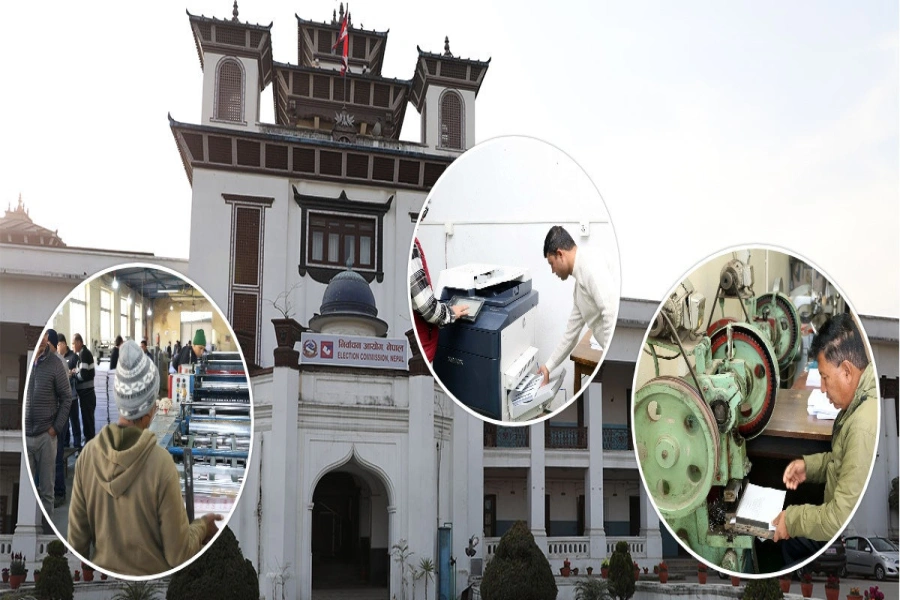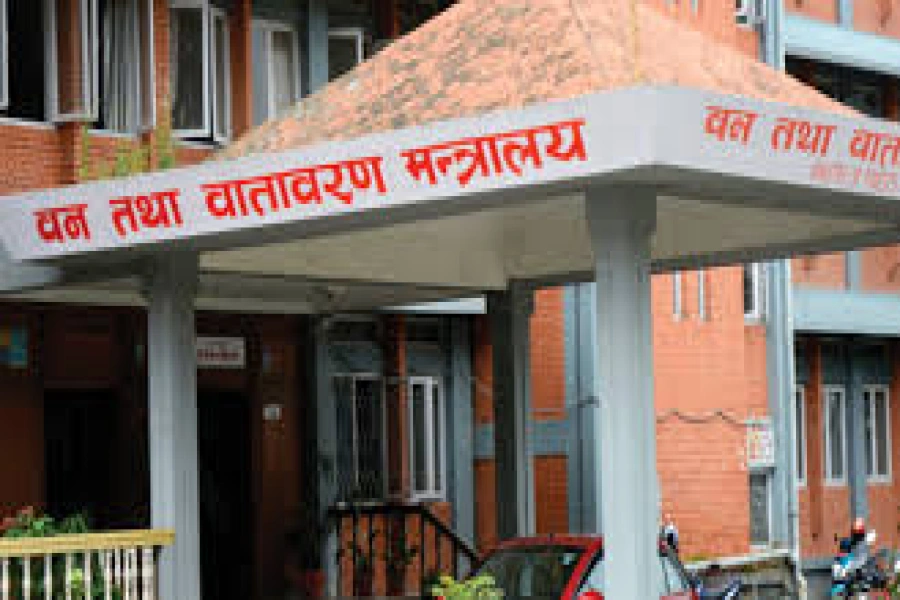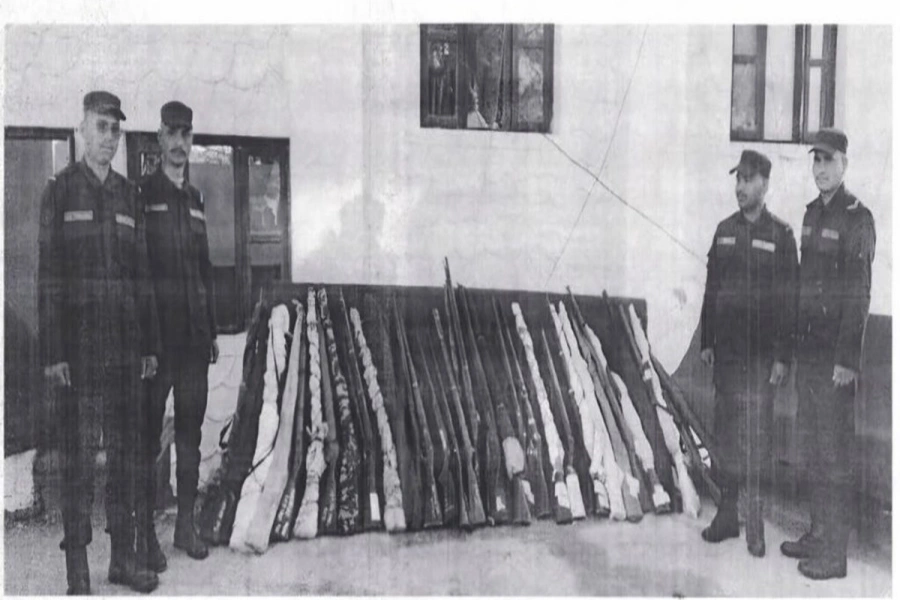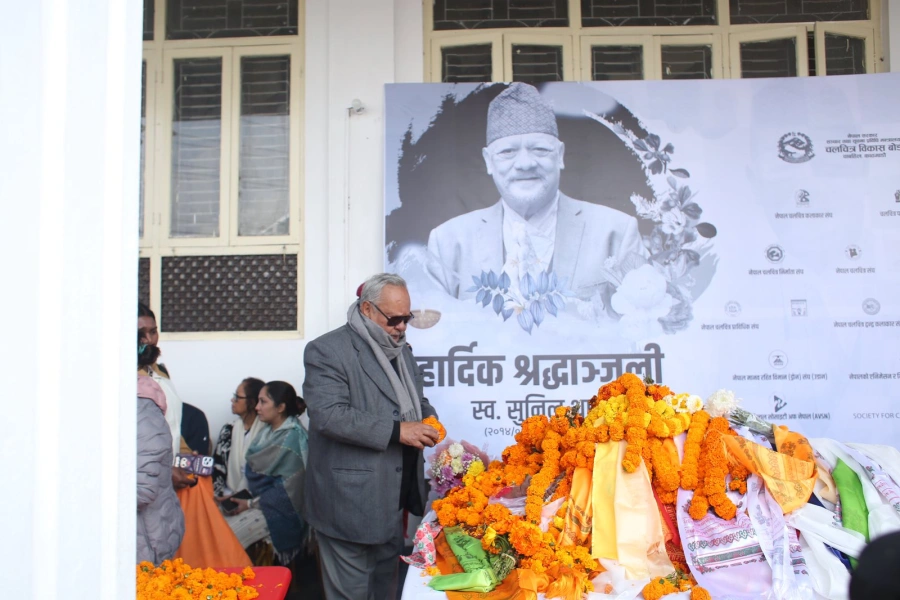40 percent of police complaints in Kaski linked to check bounce
POKHARA, May 17: In the fiscal year 2022/23, only 517 cases of cheque bounce were registered with Kaski Police. However, in the first 10 months of the current fiscal year 2023/24, this number has already reached 717. According to the police, the number of cheque bounce cases is expected to increase further as the current fiscal year is yet to end.
According to SP Mohan Kumar Thapa, chief of the District Police Office Kaski, the Kaski Police arrested 294 individuals for cheque bounce offenses in the previous fiscal year and 229 individuals in the current fiscal year.
The police did not count the number of verbal complaints received about cheque bounces. According to SP Thapa, the number of verbal complaints is higher. Including these verbal complaints, a total of eight thousand cheque bounce cases have been reported so far in the current fiscal year. The police said that many of the verbal complaints have already been resolved.
"Of the complaints received by the police, 40 percent are about cheque bounces," SP Thapa said. "Cheque bounce cases have increased alarmingly, and the number grows every day." According to him, more than 25 cheque bounce complaints are reported to the police daily, and they lack the manpower to register and investigate all of them.
Police granted full authority to investigate and prosecute in c...

"After registering the case, a file needs to be prepared and research conducted," SP Thapa said during an interaction with experts organized by the Pokhara Chamber of Commerce and Industry. The discussion focused on the increasing incidents of cheque bounce and the associated problems and solutions. According to SP Thapa, the law has provided an opportunity to settle matters related to bounced cheques over the past year.
"In the case of bounced cheques, we first take a formal complaint, call the victim, and if they come, we try to settle the case," SP Thapa said, "The issues that do not reach an agreement will proceed further."
According to him, most of the cheque bounce cases reported to the police are related to real estate, vehicles, and foreign employment. He said that the issue of cheque bounce and loan sharking in cooperatives is equally alarming. Additionally, there has been an increase in the number of bounced cheques in business transactions.
“If given Rs 500,000, loan sharks would make a cheque for Rs 1,000,000. It was found that cooperatives also do not seek mortgages but keep cheques with added interest from the beginning," he said.
"If a cheque bounces three times, you can file a complaint with us or directly in the district court. For banking offenses, there are provisions for the payment of the amount along with fines, and imprisonment ranging from three months to 12 years," he said. "However, if the perpetrator has transferred land for a lesser amount, they will only receive the amount mentioned in the transaction."
He said that if a cheque is not cleared three times within six months from the date of issue, it is considered a bounced check. There is a provision allowing a complaint to be filed with the police after the concerned bank issues a bounced cheque letter indicating that there are insufficient funds in the account. The complainant should file a complaint with the police in the district where the cheque bounced.
According to Thapa, after a cheque bounces, the concerned person will be blacklisted by the bank, and their movable and immovable property will be frozen. The police will then proceed with the investigation. Additionally, the police will record the accused in the criminal record system and can remand them for up to 60 days for investigation. After completing the investigation, the police are required to file the case in court within six months.
"There are 12 topics included in banking offenses, and cheque bounce is one of them. Generally, investigations can be carried out even if the accused is not detained, but because such persons often threaten the victims, we keep them in custody and investigate," said Superintendent of Police Thapa, "There is also a provision for settlement in any cheque bounce case."
According to him, banking offenses include unauthorized account opening, demanding payment, issuing cheques without sufficient funds, and unauthorized receiving and giving of payments through electronic means. To prevent such actions, the Banking Offenses and Punishment Act 2064, Telecommunication Act, Cooperative Act, Criminal Code, Bank and Financial Institutions Act (Bafia) 2073, and other laws are enforced.
Pawan Kumar Prajapati, president of the Pokhara Chamber of Commerce and Industry, noted that the increasing incidents of cheque bounce have also affected businessmen. He said that when the market slows down, the state should be sensitive to the rise in cheque transactions rather than cash transactions.
"The market has slowed down, and cash transactions have stopped. Businesses are relying on credit and cheques, which has strengthened the business sector," Prajapati said. "This has added to the concerns of businessmen." He stressed the necessity of providing information on where to seek legal remedies when a cheque bounces, how to file a complaint with the police, and what procedures to follow when going to court.
According to Gokarna Karki, senior vice president of the Pokhara Chamber of Commerce and Industry, common industrialists have started to fall under the grip of cheque bounces. "There is a situation where one has to be afraid to conduct financial transactions," he said.
In discussions with businessmen, Surya Prasad Tiwari, coordinator of the Bankers Association Gandaki, suggested that avoiding loan transactions is the way to prevent cheque bounces. He highlighted the development of the electronic payment system and advised asking for immediate payment and refraining from unauthorized activities.
Tiwari said that when a person is blacklisted for banking offenses, all their financial transactions are halted, which can also affect their descendants. "Banks avoid dealing with people who bounce cheques as much as possible," he said.









_20220426210826.jpg)

























